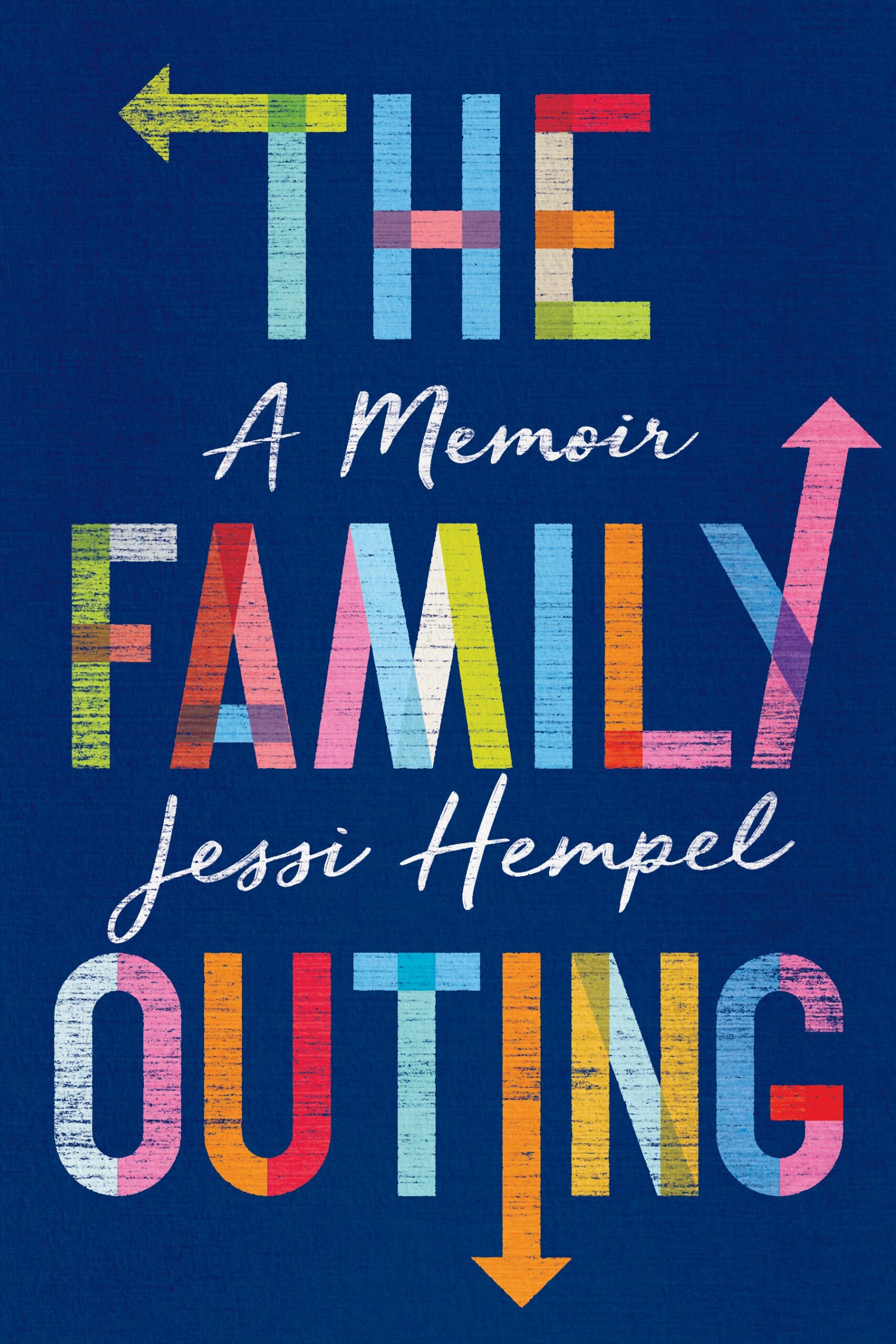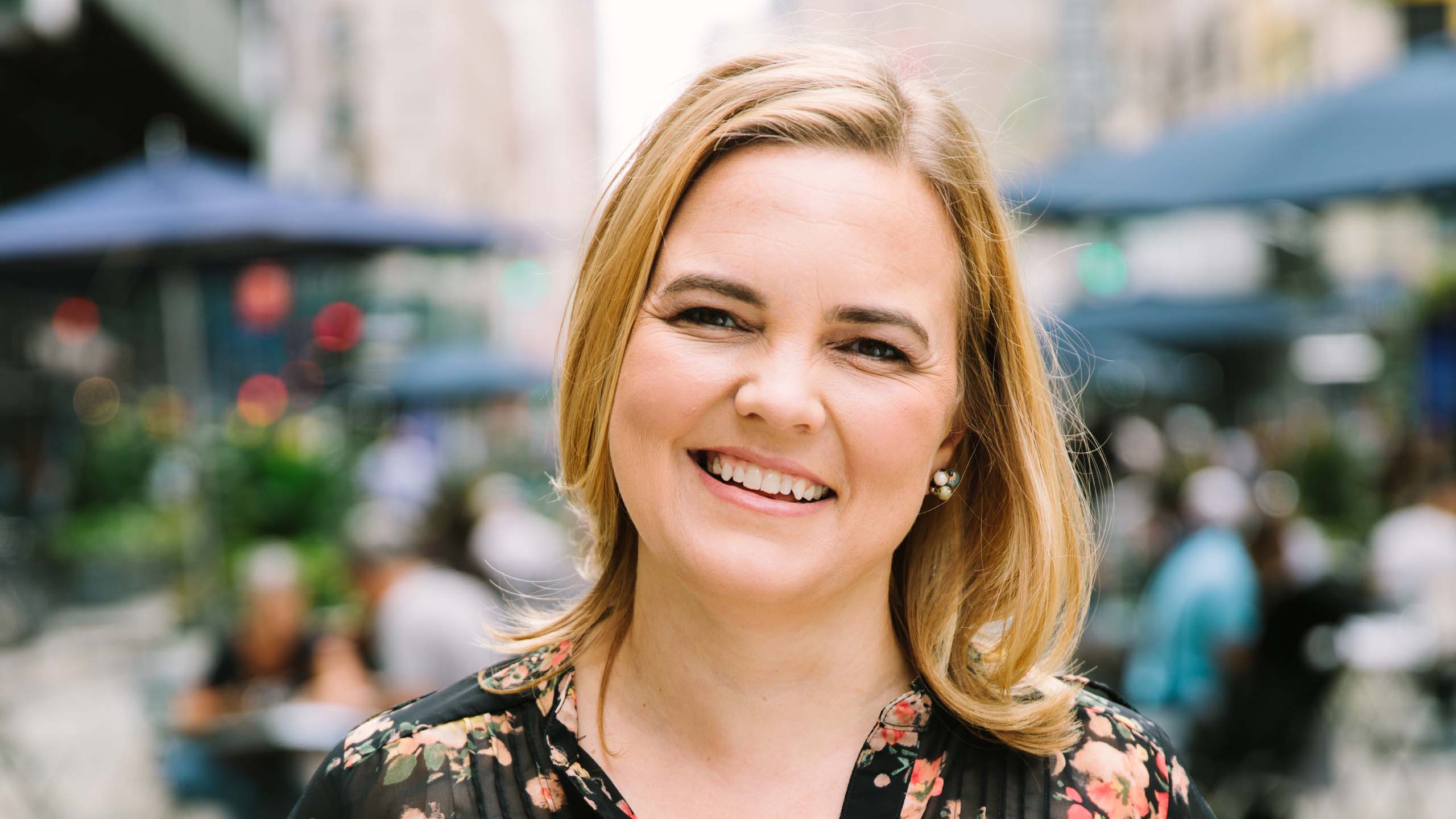Journalist Jessi Hempel grew up in what appeared to be a picture-perfect, all-American family: nuclear, heterosexual, yet definitively malfunctioning. When she came out as a lesbian at the end of her adolescence, she didn’t realize this was only the beginning of a series of events that would take an eager mallet to her family’s wobbly foundation. Over the next several years, each member of Hempel’s family would come out, in their own way: her father as gay, her sister as bisexual, her brother as a trans man and her mother as the survivor of trauma. Under the weight of all these admissions and transitions, her maladaptive family structure crumbled —clearing up room for something stronger and more honest to be built in the space left behind.

In her memoir, The Family Outing, published October 4 by HarperCollins, Hempel recruits her parents and siblings to help her tell the unlikely story of a dysfunctional family working to vanquish shame and move toward authenticity. Hempel writes with vulnerability and transparency about the trials and tribulations of growing up in a family desperately keeping secrets from itself, not shying away from letting the reader into an intimate, and at times troubling, family portrait. We see Hempel coming into her own queerness through GSAs, buzzcuts and campus parties after Ellen DeGeneres’s televised coming out. We see her dad transform from a withdrawn, repressed lawyer into a passionate, proud gay man. We see her siblings find themselves, come out and marry. Most shockingly, we see her mother “come out” about her traumatic experiences with a serial killer’s alleged accomplice.
The book is less Hempel’s memoir than the memoir of the family unit, with Hempel as its scribe—each family member is consulted and interviewed with the intention of weaving together a collaborative narrative that honours the truth of their own experiences, experiences that don’t flawlessly align much of the time. Through Hempel’s unwaveringly honest voice, The Family Outing provides a portrait of a family in flux—fighting, hiding and hurting, but also, importantly, trying to love and care for one another.
“Being queer, and reckoning with that queerness, forced us to do that work that many people never get around to doing, to engage deeply in that process of self-actualization,” Hempel writes. “And, in the end, it has given us our family back. We began to find one another when we found ourselves.”
Hempel spoke to Xtra from her home in New York about the book, what it means to be queer in a queer family, finding the “authentic self” and what it means to come out.
You were the first person to come out in your family, before your dad, sister and brother. How does it feel to be a trendsetter?
I never really thought of myself as the trendsetter; if you knew me, you would’ve thought that I was the last person to come out to myself. I talk to my dad a lot about whether my coming out influenced him to come out. He came out three years after I did, but in his heart he always knew that he was gay. I think his belief was that he was choosing to live another way, and that you could choose your way out of being gay. He says now that when I came out to him, he realized “Oh, if my daughter is going to do the work of being honest with herself, then I’m going to have to do it.” It took him another three years, but that was the moment when he knew he was going to have to look at himself.
What about with your siblings? Do you think they were influenced by the two of you?
It’s sort of impossible to decouple one person’s journey from another; that’s the nature of a really close family. I certainly think that by the time my sister and my brother were reflecting on their own sexuality and their own journey, they had access to models. They knew that they had some sort of social permission within our family to think about it, and that everything would be okay and things wouldn’t fall apart. They already had a model for what it means to confront the secrets that you keep even from yourself, a model for living through that and being okay and even better for it.
How did your family members coming out make you think differently about your own identity?
My story about myself until I was in my early 20s was that I lived in what sounded like a perfect family. On paper it looked good, but it didn’t feel good to me; it felt broken and I couldn’t figure out why. That was a key element to my identity. When everybody started to come out, I had to look back and re-examine all the different parts of my family life. That’s when I realized that it didn’t feel good because it wasn’t good. While we might have achieved some outward semblance of normalcy, it didn’t honour who we actually were.
How did your dad’s relationship with you and your siblings change when he came out?
I’m the oldest of the three kids, and I was 23 when my dad came out. The other two were in their late teens. And Dad comes bleeding out of the closet, and enters what our family jokingly calls “the rainbow phrase.” The towels are rainbow towels, he’s got rainbow rings, a rainbow key chain, rainbow candles are burning and he is capital-G Gay. At that point, he knew that I was gay and that my brother was starting the journey of coming out, so he thought we would all be best friends, because we were all on the quote-unquote “same team.” But of course, that’s not how family relationships work. We felt let down by him because he had been absent for so long. It took him a while to learn that he had to do the work of repairing our relationships to make us love and care about and trust him again.
Why do you think this “rainbow phase” happens to people? It’s something that seems to happen to people for a period of time after they come out.
I think it’s because it takes us a while—and it should, this is the journey of our lifetime—to come to the most true version of ourselves. There is a complete freedom that comes when you first come out, and you can look around and say, “Those expectations to which I was trying to conform, I don’t have to conform to them.” But then you ask a harder question, which is, “If not that, then what? Who am I? What is my model?” These answers are entirely internally driven. It’s something much deeper than what you wear or what your hair looks like. But often, the first thing we do is rush to what we see as the face of a community. When I came out, the first thing I did was shave my head. I knew this is what queer girls in the late ’90s did. It felt powerful, and for several years I had a shaved head. When I started to settle back into a truer expression of myself, it turned out that I had long blond hair and wore lipstick, which was as surprising to me as anybody else.
What are some assumptions that people have about being queer in a queer family that aren’t correct?
That we all have a shared context and background, or a shared political perspective. We don’t all speak the same language. My dad’s experience as a wealthy, white, older gay man is very different than my brother’s experience as a transgender parent carrying a child, and different from my experience as a 40-something lesbian. I had a conversation with my father recently: he was proud of an article he’d written for his local LGBT2SQ+ magazine, which gave advice on being the parent of a transgender young person. He didn’t use my brother’s deadname, but it referred to my dad’s experiences of having a daughter. The publication, to its credit, assumed the best intentions and wanted to work with him, but let him know they couldn’t publish it because it was terribly offensive. My dad needed help from an outsider to understand, and now he does get it intellectually, but he doesn’t get it emotionally. That’s terribly painful, and this is the pain that’s happening inside a family that’s trying really hard, so imagine families that aren’t trying really hard.
You write and speak a lot about the idea of the “authentic self”? Do you think that everyone has a truest version of themselves inside of them?
I think about it more as a constant process of becoming. The moment you land on what you consider to be a true expression of yourself, you change. Change is the only constant in our lives. But we’re born into a world of other people’s expectations, good and bad. Your parents, geographic community and maybe religious community all have ideas about who you will be. Sometimes people are those ways, and they live a fairly unexamined life, because life just flows for them. But that’s not usually how it works for most people. For most people, the process of coming out is in tandem with the process of growing up. It’s the process of realizing what doesn’t fit and shirking it, letting go of other people’s expectations as you embrace the things that feel more true for you.
So you think coming out is more of a process than a singular event?
Completely, completely. We come out over and over again, and if I were to ever stop coming out then I would also stop growing.
When you write about your mom’s experiences with trauma, you draw a comparison between coming out as LGBTQ2S+ and coming out as a survivor of traumatic events; why link these things?
I originally went into this process thinking about coming out narrowly, as a sexuality and gender thing, because that’s how it manifested for me. But you can apply that process to many other things. For example, in my mom’s situation, she came out as a survivor; she gradually shifted her identity to take that on. I think there are many things that people come out about.
What are some things that we can do to improve our relationships with our families, and make them happier and healthier?
This question is what the purpose for the book really was. I think that the first thing we can do is make space to listen without judgment. If you can get to a place where you want to share with your family members how growing up in that family impacted you, that in itself is a brave move. But if you really want to one-up that and use the conversation to come away closer, then you flip it, and say that you actually want to hear what it was like for the other person. And you listen.
How does shame about our identities hurt this process of honesty and the strength of our families?
I think shame is basically toxic. It’s a disease. I think that there’s a physical and emotional link, that shame can work its way out of us in all kinds of devastating ways. As humans, shame is something we should work to eradicate. And the process of coming out is the process of letting go of shame. We are all worthy by virtue of our birth.
In The Family Outing, you speak a bit on theories of queerness being passed down through families, either on the genetic level, or socially. Is there merit to these claims?
From everything that I understand through my research, any direct genetic link or “gay gene” theory has been debunked. The best we understand is that it’s possible our genes influence our sexuality and gender to some degree, but it’s impossible to decouple the way genes influence them from how our social upbringing does. If you live in a family with queer role models, you have more options to choose from as you start to consider who you might be.
What do you think is problematic or maybe dangerous about these biological theories of queerness?
To be really direct, it suggests that there’s a problem to be solved with my experience of being queer. Being queer is the gift of my life. I would hate for anyone to ever think that living as the truest expression of yourself is something that needs to be fixed.
What’s the likelihood of the next generation of your family coming out?
I tie up the end of the book by saying that I expect they will be in the process of coming out, but I have no idea what that will mean. My hope is that in 20 years when they finally get around to reading this—which they probably won’t, because they’ll probably think I’m an old fogey—that they’ll review it and think, “Wow, they were at the beginning of understanding the human experience. This is old-fashioned, it’s outdated. We understand so much more about what it is to be human and all of its expressions right now.”
What do you hope readers will take away from The Family Outing?
The ideas in The Family Outing feel really crucial, and I hope they encourage others to feel braver in coming out. In the United States today, every time I open the newspaper I see a new threat to my family. Yesterday I opened the newspaper and discovered that the state of Virginia has decided that it’s okay to allow discrimination in schools against transgender people—that’s just a thing that’s suddenly completely legal. So it’s not safe for everyone to come out. But if you’re in a situation where it’s physically safe to come out, I’m here to say that it can also be emotionally safe.
This interview has been edited for length and clarity.


 Why you can trust Xtra
Why you can trust Xtra


